A head is a pretty heavy thing when you’re a little baby. It takes a bit of time before they’re ready to support their own head. This is because they need to strengthen their muscles and learn to balance first. But there are things you can do to help them along the way, such as playing and talking. This can help your baby develop the skills they need and encourage them to give it a go when they’re ready.
Things to remember
It’s important to remember that all babies develop at different speeds and you shouldn’t be overly concerned if your wee one is going at their own pace. This is especially true if your baby is born premature.
If your baby is under 8 weeks old, you can find out more about their milestones at Ready Steady Baby.
Learning new physical skills isn’t easy for babies and can sometimes cause them to get upset and cry. This can be hard for you too, so remember to ask family and friends for support, or speak to your Health Visitor or Family Nurse for advice.
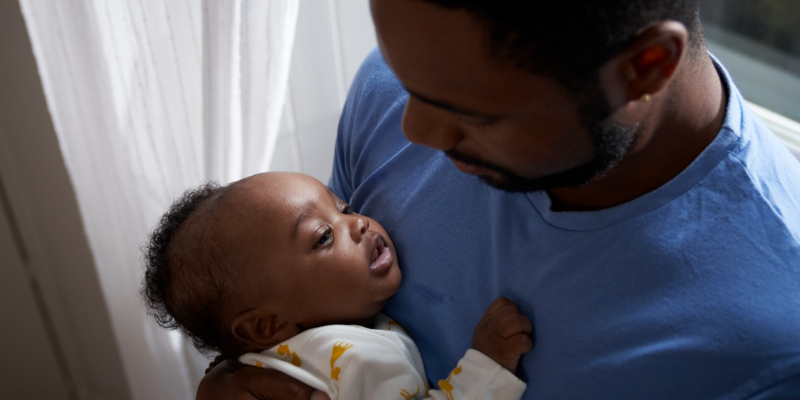
What to expect from 0 - 3 months
At the beginning, babies’ heads need to be supported as their neck muscles are very weak. It’s important to support your baby’s posture with your hands, V-shaped cushions or a bouncy cradle.
When your baby is awake and settled, sitting is a good position for them to explore their surroundings. Chatting to them face to face also encourages them to move their head. At this age your baby is most interested in faces. Lots of eye to eye contact will encourage them to watch and listen to what’s going on around them.
You can also help your baby develop their muscles and control through doing daily tummy time. This is also lots of fun and a great way for you to bond.
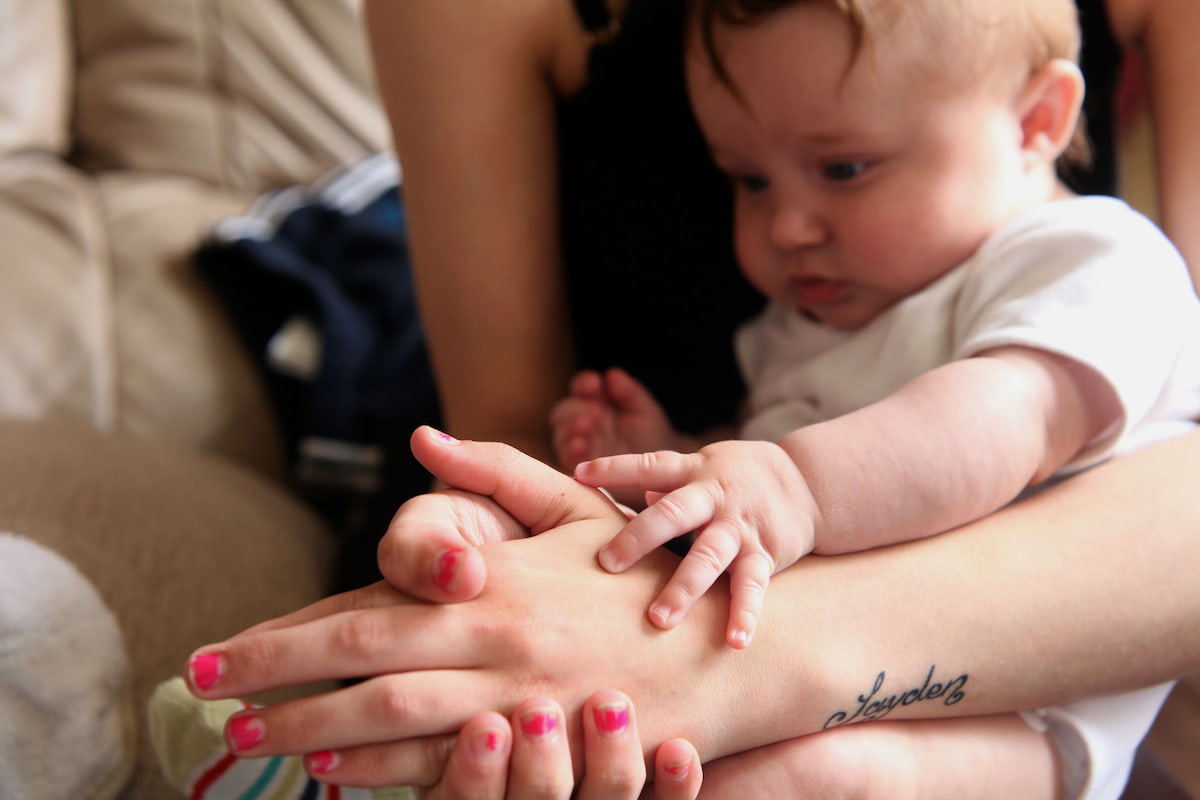
What to expect between 4 - 6 months
As your baby’s muscles start to get stronger, you’ll begin to notice they need less support. Try positioning them upright with V-shaped cushions to support further down their back. This should let your baby start to hold their head up unsupported.
Fun things to help your baby hold their head up from 4 months on
There are lots of little games you can play to help them build their strength. Try out some of our tips below:
Tip #1: Sit ups
Start with your baby lying on their back and support them around their shoulders and head. Slowly bring them up into a sitting position. If your baby’s head falls back every time, please don’t continue. This means their muscles aren’t strong enough for this exercise yet.
This video from NHSGGC shows how to support your baby to sit up.
Tip #2: Knee rides
Sit on a supportive surface with your baby sitting on your knee, facing you. Then sing a nursery rhyme as you gently bounce your baby up and down and side to side. Making sure their head is well supported, you can then try lowering your hand position as they become more confident.
Tip #3: Tummy time
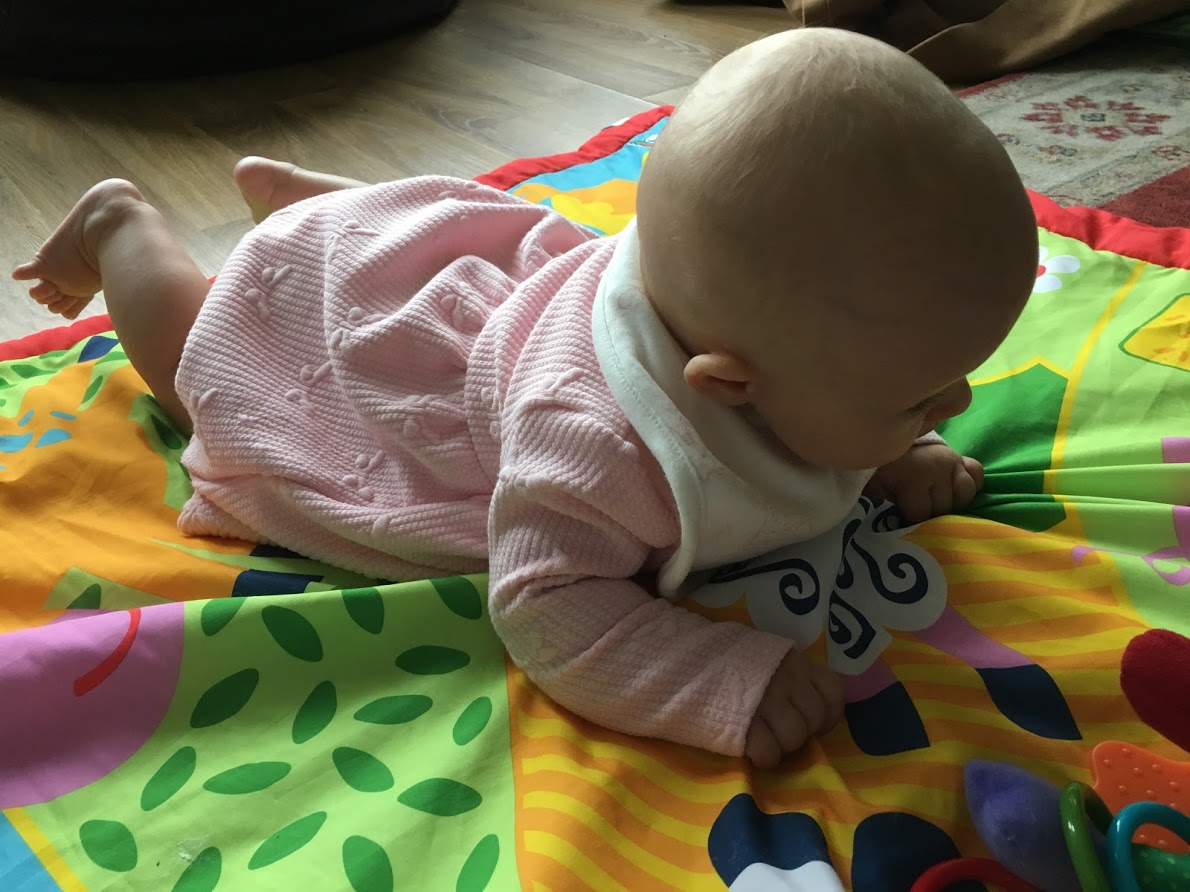
The ideal time to try tummy time is after your baby wakes up from a nap or after a nappy change. Place your baby on their tummy, either on your chest, or the floor, using a clean towel or playmat. You can then talk and sing to your baby as this will reassure them that everything’s ok. As your baby gets more comfortable, try these ideas to make tummy time more fun and challenging.
Staying safe
If your baby can’t hold their head up, it’s important to make sure they’re supported whenever they’re not lying flat.
When you need to drive long distances with your baby in their car seat, it’s also a good idea to take regular breaks. This is because your baby’s head can roll forwards when they’re not sleeping flat, which can affect their breathing. Find out more about car seat safety.
Should I be worried?
After 6 – 8 weeks, contact your Health Visitor or Family Nurse if your baby’s head is still flopping back when it's not supported. If you have any other concerns at any stage of your baby’s development, you can discuss this with your Health Visitor or Family Nurse. If your baby is premature and receiving follow up care, you can also get advice from your developmental team.
If you have twins, triplets or more they may take a bit longer to reach milestones, especially if they were born prematurely. It’s best to talk to your health visitor if you have any concerns. You can find out more about milestones for multiples on the Twins Trust website.
Learning new physical skills can be hard for babies and it’s normal for them to cry. If they get really frustrated, they can cry in an angry way and their faces can turn quite red. You might find this worrying, but as long as your baby is not having breathing difficulties, there is nothing to be alarmed about. Just try to comfort and settle your baby as normal.
 Activities & Play
Activities & Play Behaviour
Behaviour Childcare
Childcare Development & Growing Up
Development & Growing Up Family, Friends & Relationships
Family, Friends & Relationships Feeding Your Baby
Feeding Your Baby Food & Eating
Food & Eating Health & Safety
Health & Safety Mental Health & Wellbeing
Mental Health & Wellbeing Money & Work
Money & Work Online Behaviour & Safety
Online Behaviour & Safety Pregnancy & First Days
Pregnancy & First Days School & Education
School & Education Sleep
Sleep


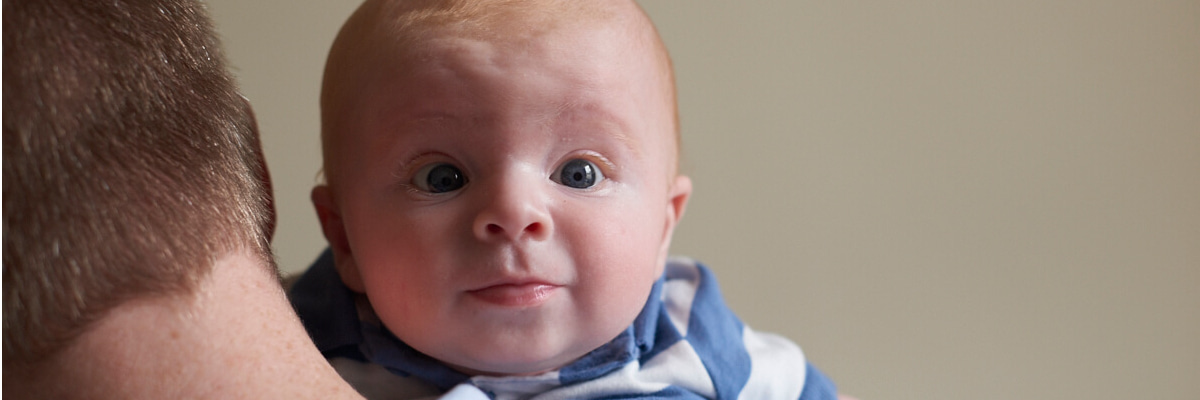
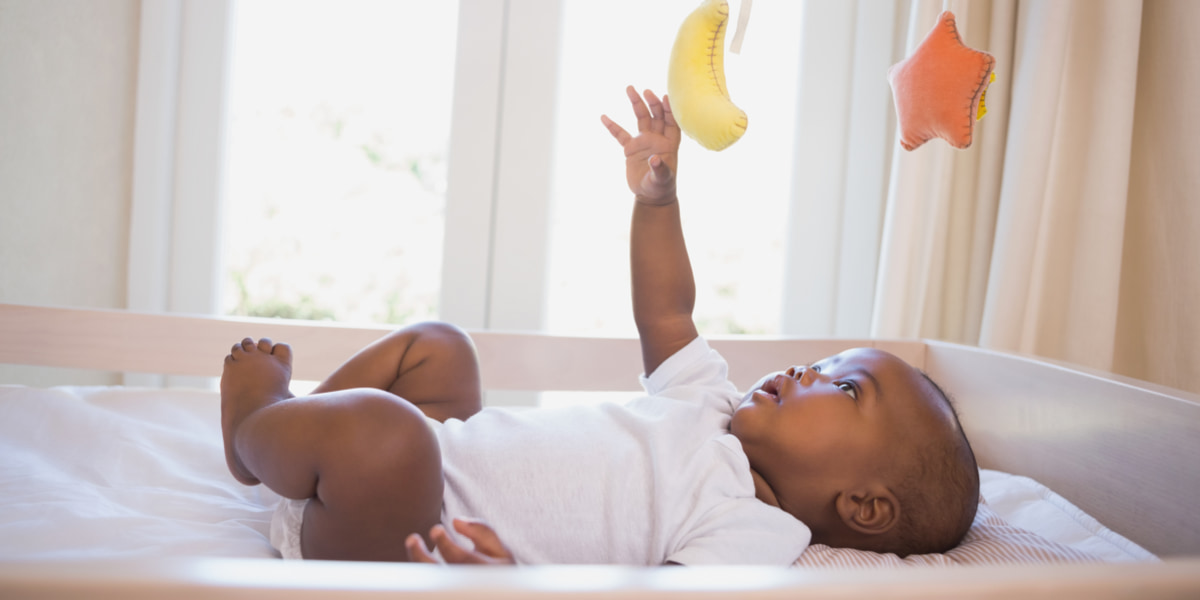
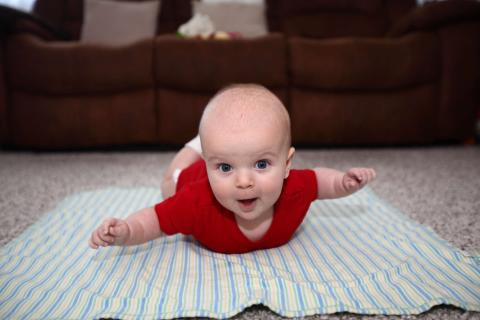
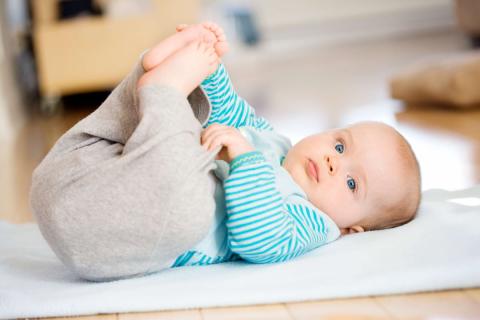


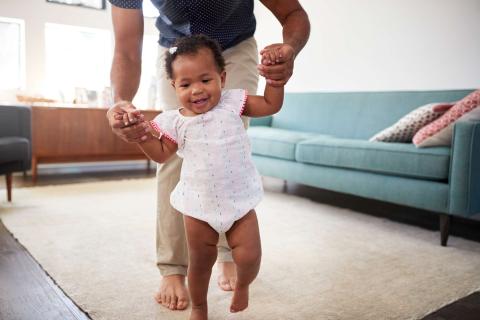
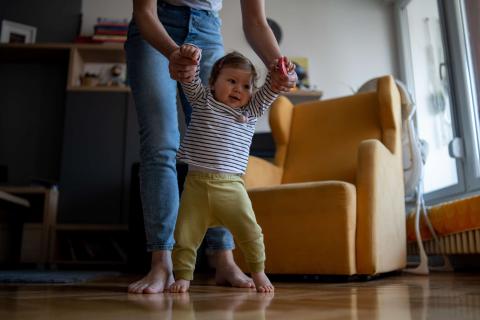
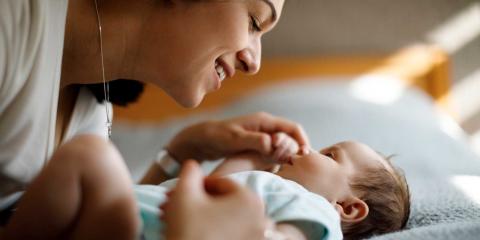
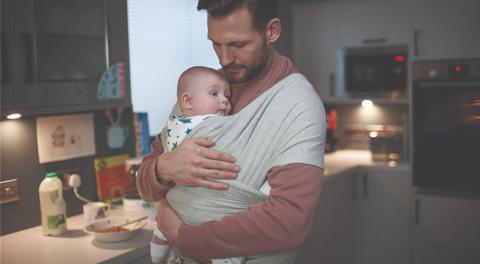

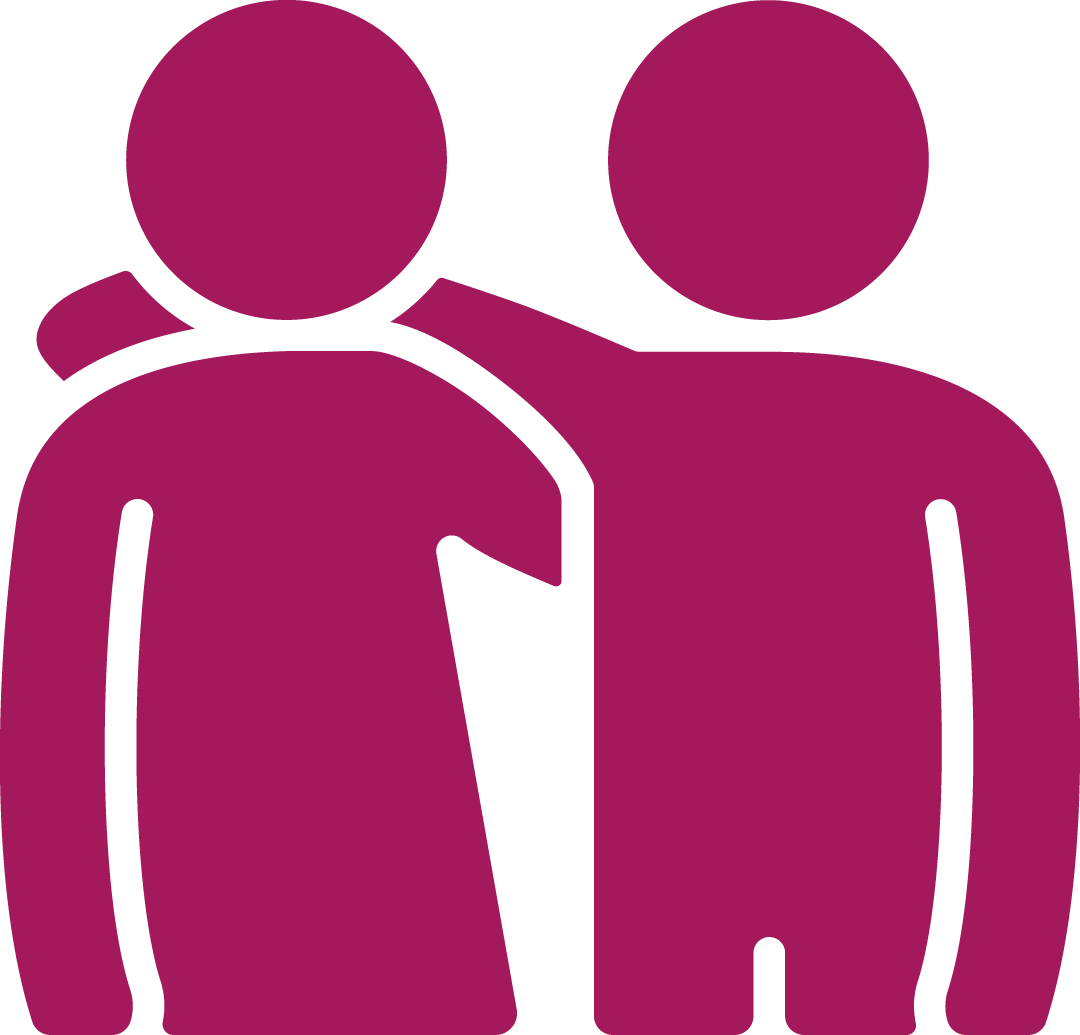 Family, Friends & Relationships
Family, Friends & Relationships
 Mental Health & Wellbeing
Mental Health & Wellbeing